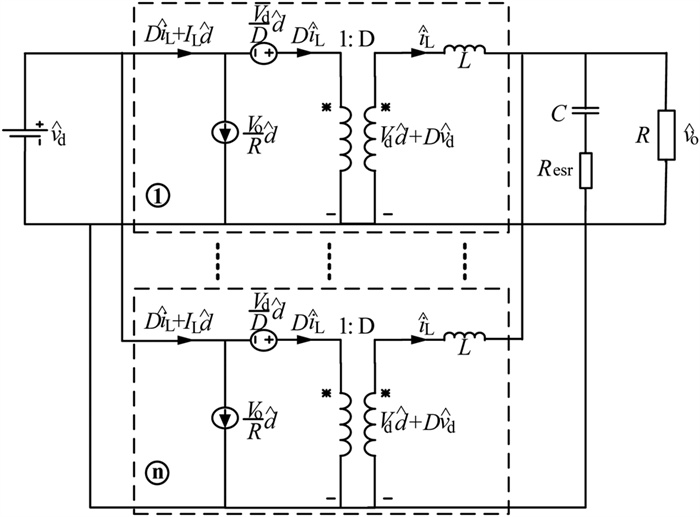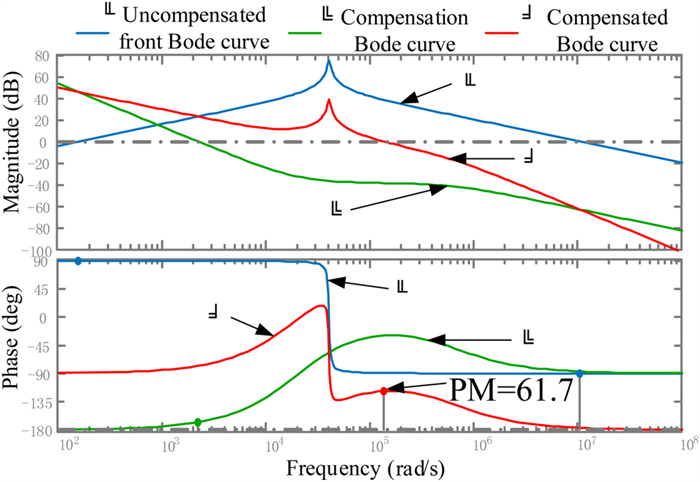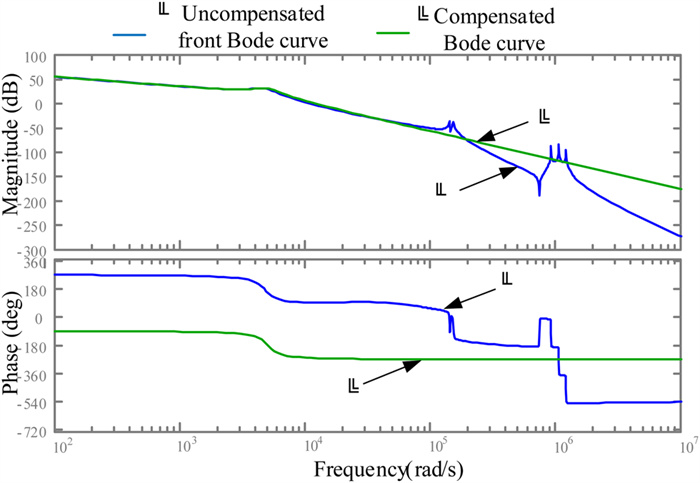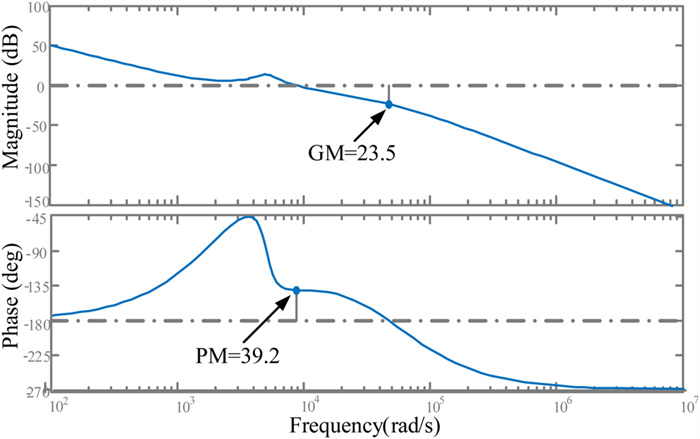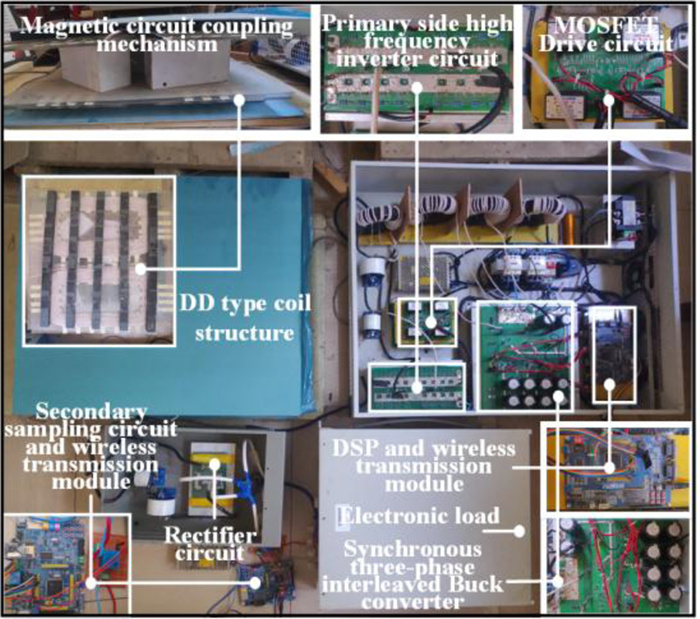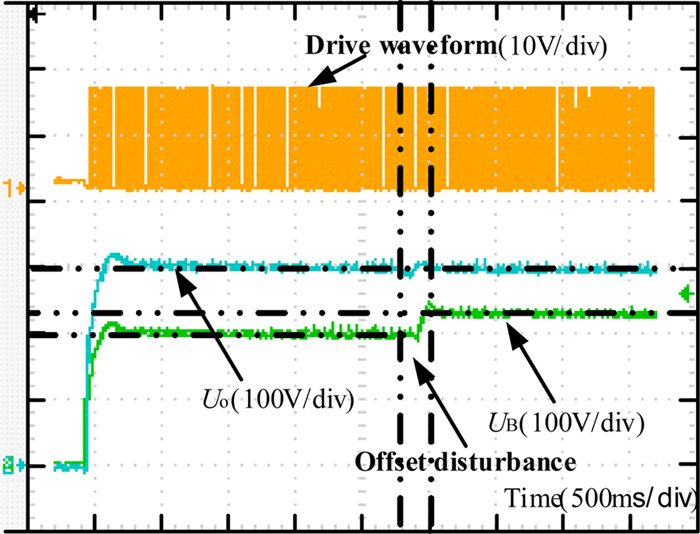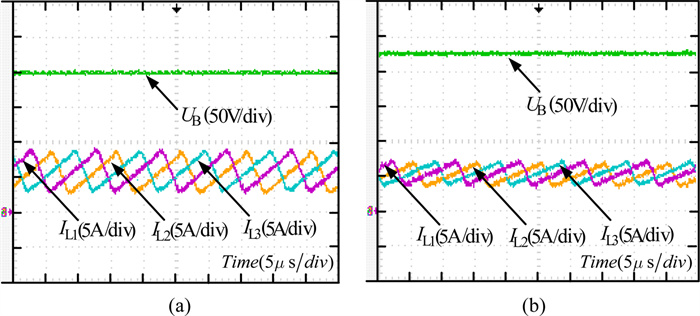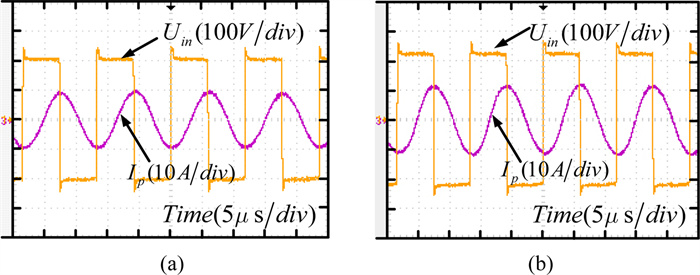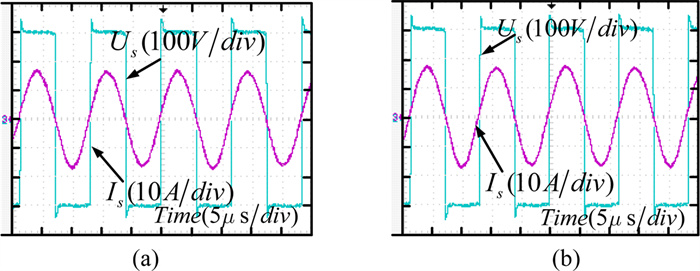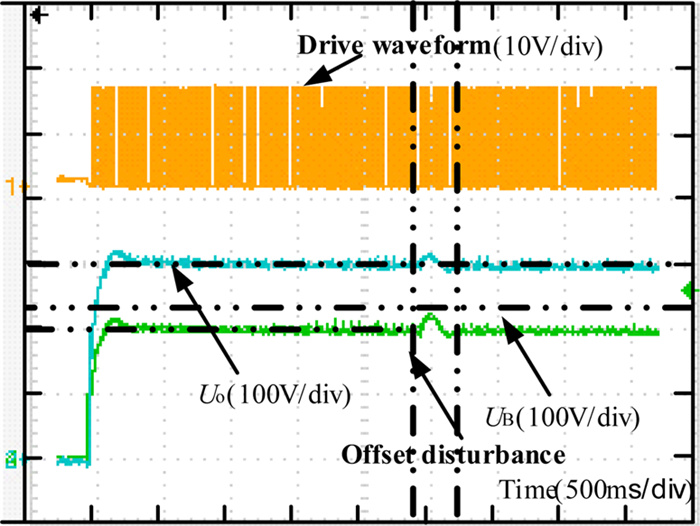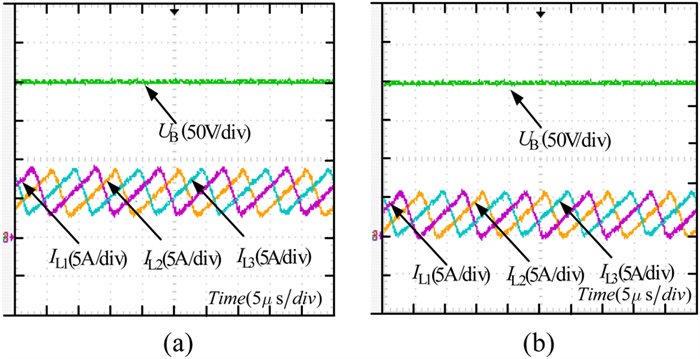Hybrid modeling and control of ICPT system with synchronous three-phase triple-parallel Buck converter
-
1.
China Electric Power Research Institute, Beijing 100192, China
-
2.
School of Electrical and Power Engineering, China University of Mining and Technology, Xuzhou 221116, China
More Information
-
Author Bio:
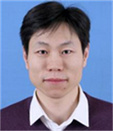 Songcen Wang
Songcen Wang was born in Henan Province, China, in 1979. He received his B.S degree in Control Theory and Control Engineering from North China Electric Power University, Beijing, China, in 2001, and the M.S. and Ph.D. degrees in Power Electronics from China Electric Power Research Institute (CEPRI), in 2004 and 2010, respectively. From November 2014 to October 2015, he was an academic visitor at the Aalborg University, Denmark. He is presently working as a Senior Engineer in the Department of Electrical Engineering in CEPRI. His current research interests include wireless power transfer and power electronics.
 Xiaokang Wu
Xiaokang Wu was born in Beijing, China, in 1991. He received his M.S. degree in Tianjin Polytechnic University, Tianjin, China. He is currently an engineer in China Electric Power Research Institute (CEPRI), Beijing, China. His current research interest includes Wireless Power Transmission technology.
 Ying Yang
Ying Yang was born in Jiangsu Province, China, in 1994. She received her B.S. degree in Electrical Engineering and Automation from the Nanjing University of Information Science and Technology, Jiangsu, China, in 2017. She is currently working toward her M.S. degree in the School of Electrical and Power Engineering, China University of Mining and Technology, Xuzhou, China. Her current research interests include wireless power transfer and its application.
 Cong Zhu
Cong Zhu He was born in JiangSu Province, China, in 1993. He received the B.S. degree in Electrical Engineering and Automation from Jiangsu Normal University, Xuzhou, China, in 2016. He is currently working toward his M.S. degree in the School of Electrical and Power Engineering, China University of Mining and Technology. His current research interests include wireless power transfer.
 Zhen Wu
Zhen Wu was born in Jiangsu Province, China, in 1995. He received his B.S. degree in the School of Electrical and Power Electrical from China University of Mining and Technology, Xuzhou, China, in 2018. He is currently working toward his M.S. degree in the School of Electrical and Power Engineering, China University of Mining and Technology, Xuzhou, China. His current research interests include wireless power transfer and its application.
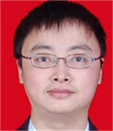 Chenyang Xia
Chenyang Xia was born in Jiangsu Province, China, in 1982. He received his B.S., M.S., and Ph.D. degrees in Control Theory and Control Engineering from Chongqing University, Chongqing, China, in 2006, 2008, and 2010, respectively. From August 2018 to August 2019, he was an Academic Visitor at the University of Auckland, Auckland, New Zealand. He is presently working as an Associate Professor in the School of Electrical and Power Engineering, China University of Mining and Technology, Xuzhou, China. His current research interests include wireless power transfer and intelligent control
-
Corresponding author:
Chenyang Xia, School of Electrical and Power Engineering, China University of Mining and Technology, Xuzhou 221116, China. E-mail: bluesky198210@163.com
-
Abstract
Aiming at the influence of coupling coefficient variation on the output voltage of a high-power LCC-S topology inductively coupled power transfer (ICPT) system, a synchronous three-phase triple-parallel Buck converter is used as the voltage adjustment unit. The control method for the three-phase current sharing of synchronous three-phase triple-parallel Buck converter and the constant voltage output ICPT system under the coupling coefficient variation is studied. Firstly, the hybrid model consisting of the circuit averaging model of the three-phase triple-parallel Buck converter and the generalized state-space average model for the LCC-S type ICPT system is established. Then, the control methods for three-phase current sharing of the synchronous three-phase triple-parallel Buck converter and constant voltage output of ICPT system are studied to achieve the multi-objective integrated control of the system. Finally, a 3.3 kW wireless charging system platform is built, the experimental results have verified the effectiveness of the proposed modeling and control method, and demonstrated the stability of the ICPT system.
-
About this article
Cite this article
Wang S, Wu X, Yang Y, Zhu C, Wu Z, et al. 2020. Hybrid modeling and control of ICPT system with synchronous three-phase triple-parallel Buck converter. Wireless Power Transfer 7(1) :10-18 doi: 10.1017/wpt.2019.17
|
Wang S, Wu X, Yang Y, Zhu C, Wu Z, et al. 2020. Hybrid modeling and control of ICPT system with synchronous three-phase triple-parallel Buck converter. Wireless Power Transfer 7(1) :10-18 doi: 10.1017/wpt.2019.17
|


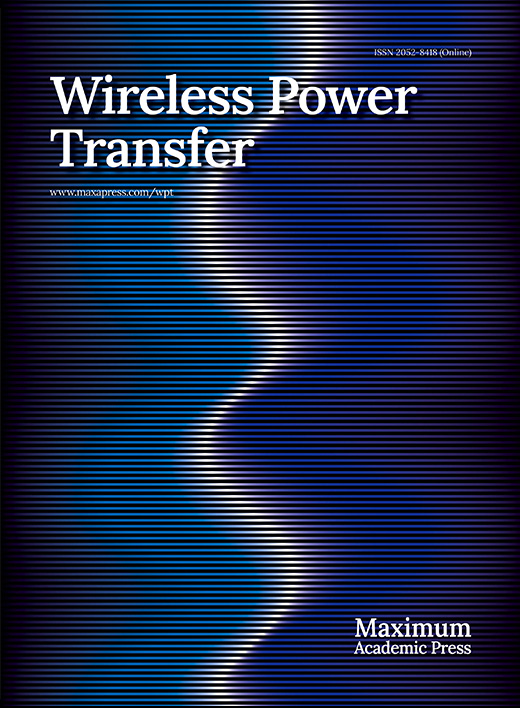






 Songcen Wang was born in Henan Province, China, in 1979. He received his B.S degree in Control Theory and Control Engineering from North China Electric Power University, Beijing, China, in 2001, and the M.S. and Ph.D. degrees in Power Electronics from China Electric Power Research Institute (CEPRI), in 2004 and 2010, respectively. From November 2014 to October 2015, he was an academic visitor at the Aalborg University, Denmark. He is presently working as a Senior Engineer in the Department of Electrical Engineering in CEPRI. His current research interests include wireless power transfer and power electronics.
Songcen Wang was born in Henan Province, China, in 1979. He received his B.S degree in Control Theory and Control Engineering from North China Electric Power University, Beijing, China, in 2001, and the M.S. and Ph.D. degrees in Power Electronics from China Electric Power Research Institute (CEPRI), in 2004 and 2010, respectively. From November 2014 to October 2015, he was an academic visitor at the Aalborg University, Denmark. He is presently working as a Senior Engineer in the Department of Electrical Engineering in CEPRI. His current research interests include wireless power transfer and power electronics.  Xiaokang Wu was born in Beijing, China, in 1991. He received his M.S. degree in Tianjin Polytechnic University, Tianjin, China. He is currently an engineer in China Electric Power Research Institute (CEPRI), Beijing, China. His current research interest includes Wireless Power Transmission technology.
Xiaokang Wu was born in Beijing, China, in 1991. He received his M.S. degree in Tianjin Polytechnic University, Tianjin, China. He is currently an engineer in China Electric Power Research Institute (CEPRI), Beijing, China. His current research interest includes Wireless Power Transmission technology.  Ying Yang was born in Jiangsu Province, China, in 1994. She received her B.S. degree in Electrical Engineering and Automation from the Nanjing University of Information Science and Technology, Jiangsu, China, in 2017. She is currently working toward her M.S. degree in the School of Electrical and Power Engineering, China University of Mining and Technology, Xuzhou, China. Her current research interests include wireless power transfer and its application.
Ying Yang was born in Jiangsu Province, China, in 1994. She received her B.S. degree in Electrical Engineering and Automation from the Nanjing University of Information Science and Technology, Jiangsu, China, in 2017. She is currently working toward her M.S. degree in the School of Electrical and Power Engineering, China University of Mining and Technology, Xuzhou, China. Her current research interests include wireless power transfer and its application.  Cong Zhu He was born in JiangSu Province, China, in 1993. He received the B.S. degree in Electrical Engineering and Automation from Jiangsu Normal University, Xuzhou, China, in 2016. He is currently working toward his M.S. degree in the School of Electrical and Power Engineering, China University of Mining and Technology. His current research interests include wireless power transfer.
Cong Zhu He was born in JiangSu Province, China, in 1993. He received the B.S. degree in Electrical Engineering and Automation from Jiangsu Normal University, Xuzhou, China, in 2016. He is currently working toward his M.S. degree in the School of Electrical and Power Engineering, China University of Mining and Technology. His current research interests include wireless power transfer.  Zhen Wu was born in Jiangsu Province, China, in 1995. He received his B.S. degree in the School of Electrical and Power Electrical from China University of Mining and Technology, Xuzhou, China, in 2018. He is currently working toward his M.S. degree in the School of Electrical and Power Engineering, China University of Mining and Technology, Xuzhou, China. His current research interests include wireless power transfer and its application.
Zhen Wu was born in Jiangsu Province, China, in 1995. He received his B.S. degree in the School of Electrical and Power Electrical from China University of Mining and Technology, Xuzhou, China, in 2018. He is currently working toward his M.S. degree in the School of Electrical and Power Engineering, China University of Mining and Technology, Xuzhou, China. His current research interests include wireless power transfer and its application.  Chenyang Xia was born in Jiangsu Province, China, in 1982. He received his B.S., M.S., and Ph.D. degrees in Control Theory and Control Engineering from Chongqing University, Chongqing, China, in 2006, 2008, and 2010, respectively. From August 2018 to August 2019, he was an Academic Visitor at the University of Auckland, Auckland, New Zealand. He is presently working as an Associate Professor in the School of Electrical and Power Engineering, China University of Mining and Technology, Xuzhou, China. His current research interests include wireless power transfer and intelligent control
Chenyang Xia was born in Jiangsu Province, China, in 1982. He received his B.S., M.S., and Ph.D. degrees in Control Theory and Control Engineering from Chongqing University, Chongqing, China, in 2006, 2008, and 2010, respectively. From August 2018 to August 2019, he was an Academic Visitor at the University of Auckland, Auckland, New Zealand. He is presently working as an Associate Professor in the School of Electrical and Power Engineering, China University of Mining and Technology, Xuzhou, China. His current research interests include wireless power transfer and intelligent control 



